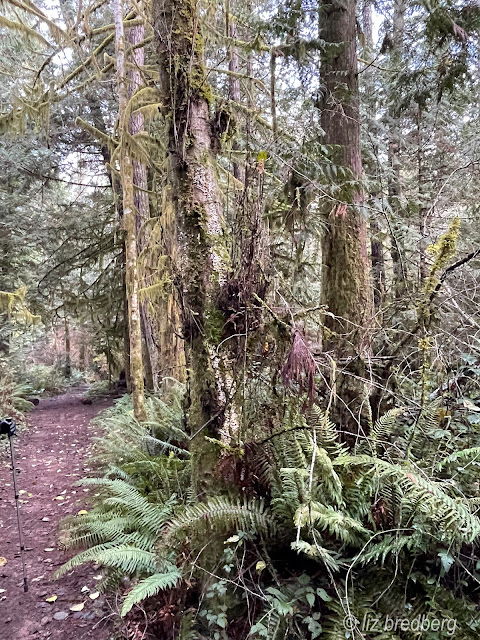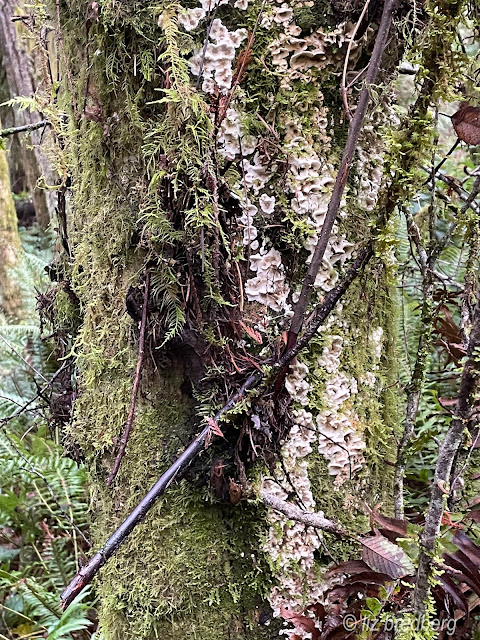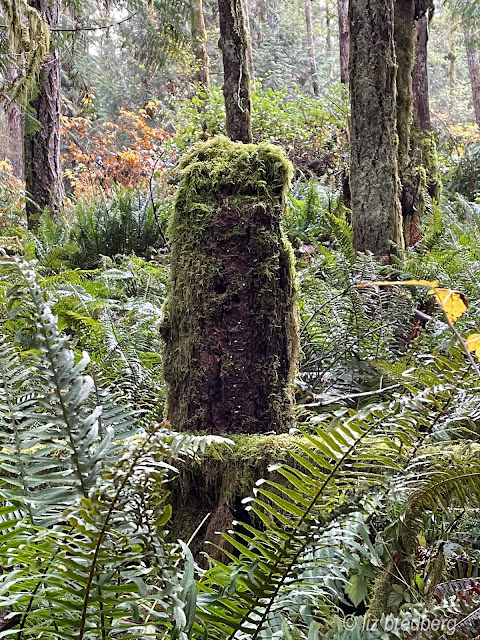18 November
A mild, overcast morning in the Forest and Wetlands.
Patches of mist formed over the marsh; some settled on the hillsides.
After my remarks a couple of blogs back about the shrinking numbers of mushrooms, a variety of new fungi are flourishing.
Last week candlesnuff fungus had appeared, but were sparse. These odd-looking fungi have become abundant.
A small cluster of birds-nest fungus had appeared among the mosses and small woody debris.
A tiny mushroom sprouted on a mossy branch. Was it nurtured by the moss?
There have been changes in the growth that we've been observing.
The woodpecker stump continues to diminish, and the mushrooms have departed.
Somehow, the two little huckleberry shoots that we've been watching on this stump have vanished.
A pity; it was fun to watch them grow.
Cascara and huckleberry still have leaves, showing autumn colour.
(I count at least six species making their homes in what is about two feet of snag.)
Out at the Marsh, the sun emerged, highlighting the sedges and the trees to the south.
The depth gauge showed that the water level continues to rise.
At the east end of the Marsh, a small flock of ducks was barely visible.
They remained blurry even after diligent post-processing and cropping, but a yellowish rump is visible on one. Possibly green-winged teal?
The marsh wren kept its distance, chattering its chip note.
Heading back to the parking lot, the seasonal ponds are rising.
The forest is becoming darker and damper as winter advances, but it's still a fine place to visit.



















Comments
Post a Comment